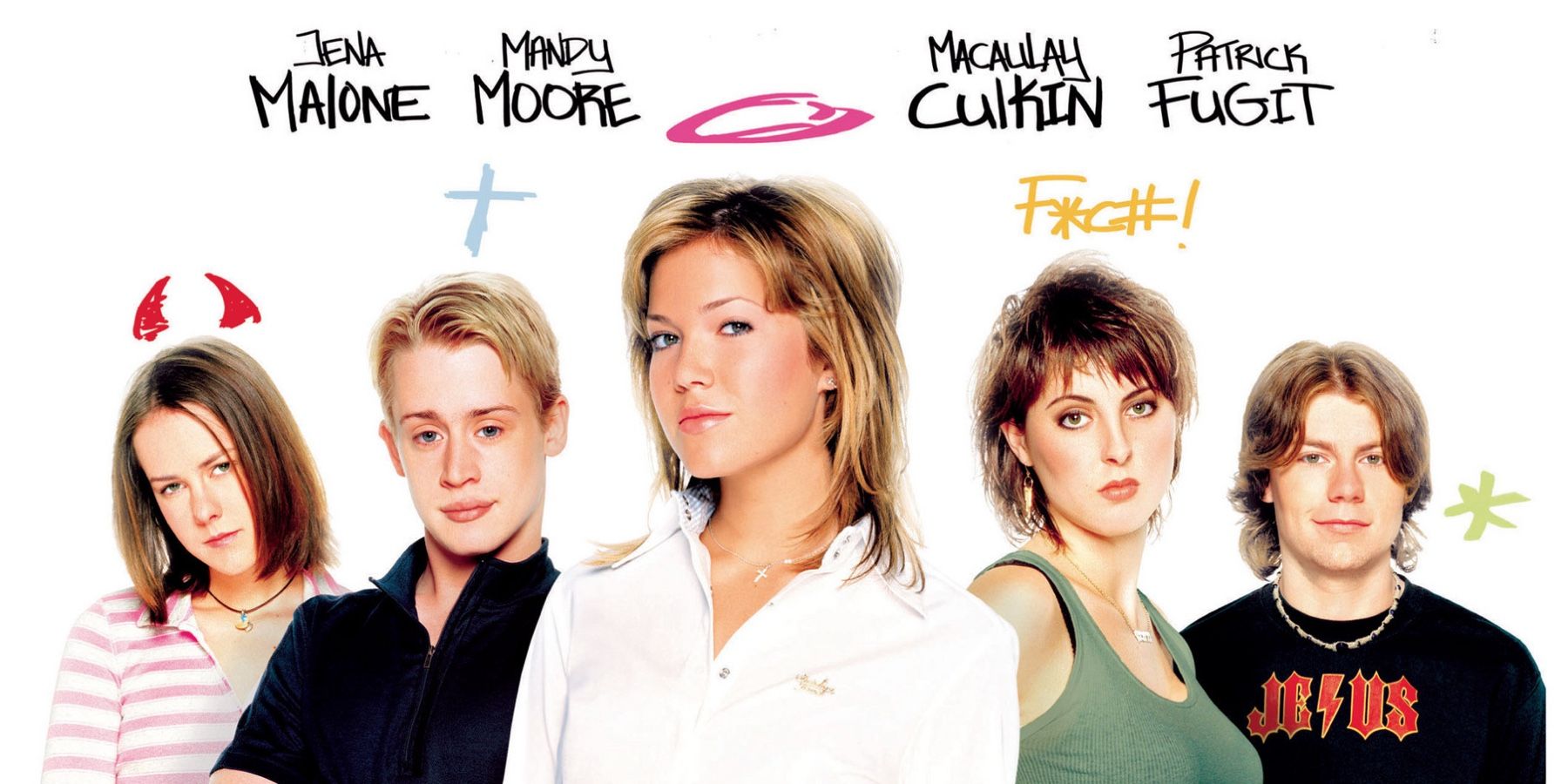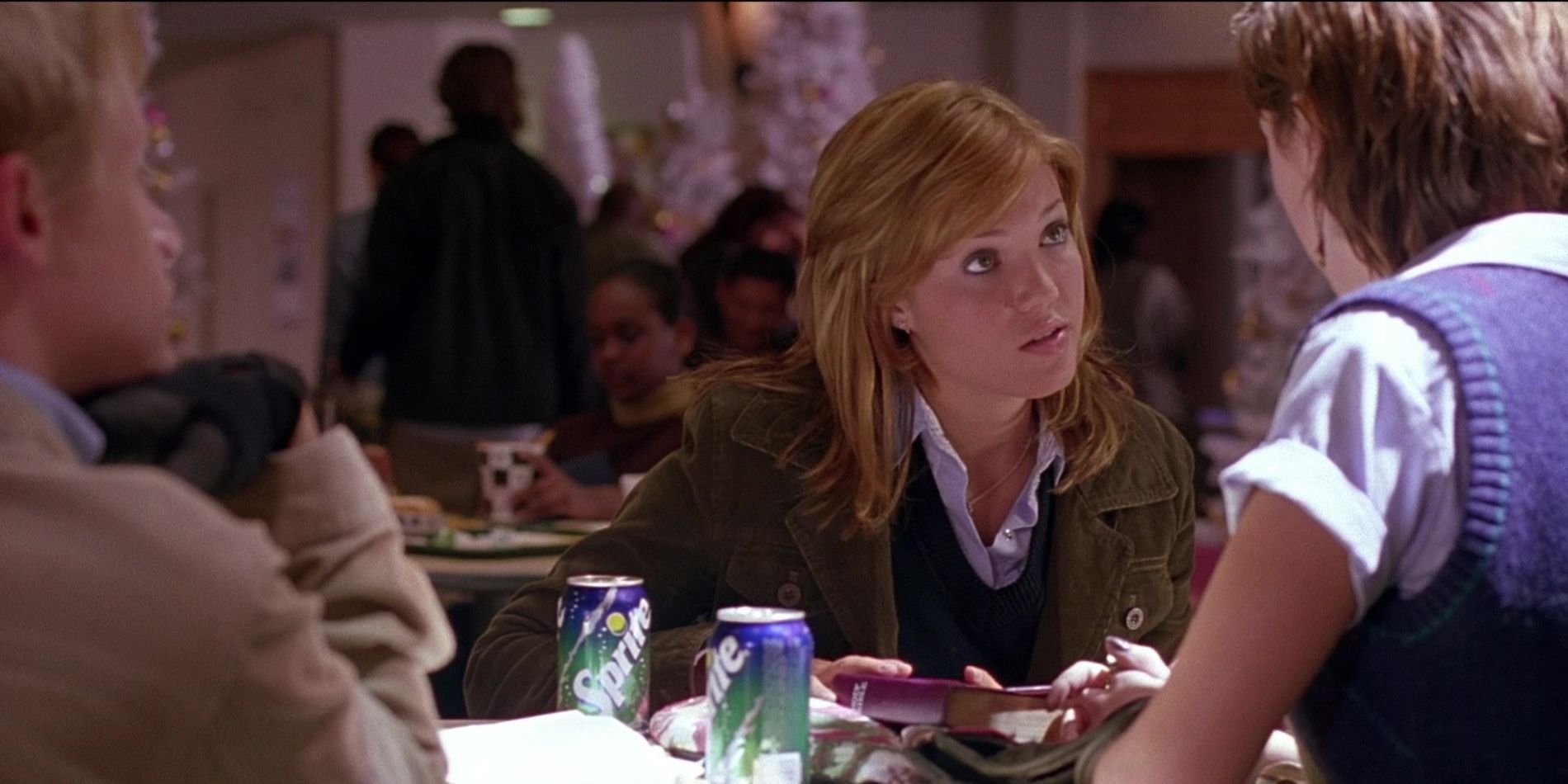This movie is funny and daring at times, but it mostly falls flat. I'm still trying to figure out exactly what point it's trying to make. If you want to see a funny and effective religious satire, rent Dogma instead.
Saved! is one of those movies that seems difficult to review. After all, how are you supposed to effectively review a religious satire without a common frame of reference? Or, as others might argue, isn't it better to have no common frame of reference at all so you can see how effectively the movie engrosses the viewer in its subject matter? Ultimately, though, I don't think it matters. I think it boils down to how entertaining the movie is, and how effectively it makes its point. Saved! is funny and daring in spots, but for the most part, it's not all that entertaining. Even worse, the movie doesn't really seem to know what it wants to say. I watched Dogma right before I watched Saved!, and I found Dogma to be a much better movie in every aspect.
Co-produced by Michael Stipe (otherwise known as the lead singer of REM), Saved! first gained attention when it won the Audience Choice award at the Nashville Film Festival. Ebert and Roeper gave it two thumbs up, so what's not to like? The problem is that everyone who liked the movie appeared to single out the religious satire aspect, while overlooking the fact that most of the movie is not truly satirical. The movie alternates between messages that are misleading, confusing and (ironically enough) preachy.
The story centers around a girl named Mary (played by Jena Malone). She has what appears to be the perfect life — she attends a good Christian high school, she's best friends with the most popular girl in school, Hilary Faye (played by Mandy Moore) and she has a great boyfriend, Dean (played by Chad Faust). However, very early into the movie, Mary's "perfect" life quickly starts to unravel. For starters, Dean reveals to her that he's gay. After recovering from the shock of that news, Mary has a vision (of sorts) in which she believes that Jesus wants her to "save" Dean by losing her virginity to him. Very shortly after that, Dean's parents find out he's gay, so they send him to a Christian home for troubled teenagers. To make matters worse, Mary finds out she's pregnant. At this point, Mary is really confused. She has done everything she thought Jesus wanted her to do, and now her life is falling apart. For the first time, she feels let down by religion.
By this point in the movie, we're starting to find out more about Hilary Faye. She's very religious on the outside, but very shallow and conceited on the inside. As long as her friends are extremely vocal about their love for Jesus, and as long as they treat her like a princess, Hilary Faye is a great friend. But take away one of those two essential conditions, and her true colors start to show. Hilary Faye's crippled brother, Roland (played by Macaulay Culkin), knows that all too well. So does the new girl, Cassandra (played by Eva Amurri), who happens to be Jewish and a smoker, so she doesn't exactly endear herself to the popular group. Mary, whose life is spiraling downward, is losing her faith, which causes Hilary Faye to become very upset. At one point, she and some of her friends actually try to perform an exorcism on Mary in Hilary Faye's van. To make a long story short, the friendship between Mary and Hilary Faye is falling apart.
Mary eventually decides that she wants to have the baby, but after a few months, hiding her condition is becoming a challenge. Since she's at a Christian school, most of the kids don't even realize she's pregnant, except for Cassandra. Things become even more complicated when the pastor's son, Patrick (played by Patrick Fugit), develops a crush on Mary. Not only is Mary too busy worrying about her pregnancy, but Hilary Faye is jealous because she wants Patrick for herself. At this point, there are lots of questions. How long can Mary keep her pregnancy secret? What will happen if everyone finds out? Who will end up with Patrick? Will Dean ever be "cured," and if not, will anyone ever accept him? Will Hilary Faye ever be friends with Mary again, or will her jealousy get in the way?
Overall, despite a few funny scenes and some valid points that are brought up throughout the movie, I still can't figure out what the movie is trying to say. Is it trying to say that there are plenty of hypocrites who hide behind religion to justify their behavior? Absolutely, but we already knew that. Is it trying to say that we should accept everyone's differences, whether they're gay, crippled or pregnant? Oh, not only does the movie say that, it downright preaches it at times — ironic for a religious satire, isn't it? Besides, the movie's whole focus on Mary's pregnancy misses the point. Without giving too many details away, I will say that while the movie doesn't make Mary's pregancy ordeal seem easy, it severely glosses over some of the "realistic" aspects of having a child, mainly the time and monetary commitments. In reality, most pregnant high school girls have to drop out or go someplace else because the rigid class schedules won't allow them enough time to take care of their children. (And that's assuming the school would even let them stay, which most Christian schools would not.) And what about the little detail that Mary's life will never be the same again? Her life is not her own anymore; her first priority will always have to be her child. That's a devastating realization for any unwed teenage mother, but the movie makes it seem like Mary takes it all in stride.
Overall, the movie doesn't seem to know what it wants to do. Does it want to satirize religion? Does it want to preach tolerance of other races/cultures/religions/lifestyles? The answer to both questions is yes, but one doesn't necessarily imply the other. I know plenty of non-religious people who are very intolerant of other people. Sure, it's more hypocritical if the intolerant people are religious, but sometimes the movie is so preachy that I'm expecting everyone to start holding hands and singing "Kumbayah." Concentrating more on the religious satire would have made this a much better movie. As far as I'm concerned, Kevin Smith's movie Dogma sets the standard for a humorous, satirical look at religion. (Does it get any better than seeing George Carlin unveil the Buddy Christ?) If you're looking for a funny, effective religious satire that makes its point loud and clear, rent Dogma instead.


